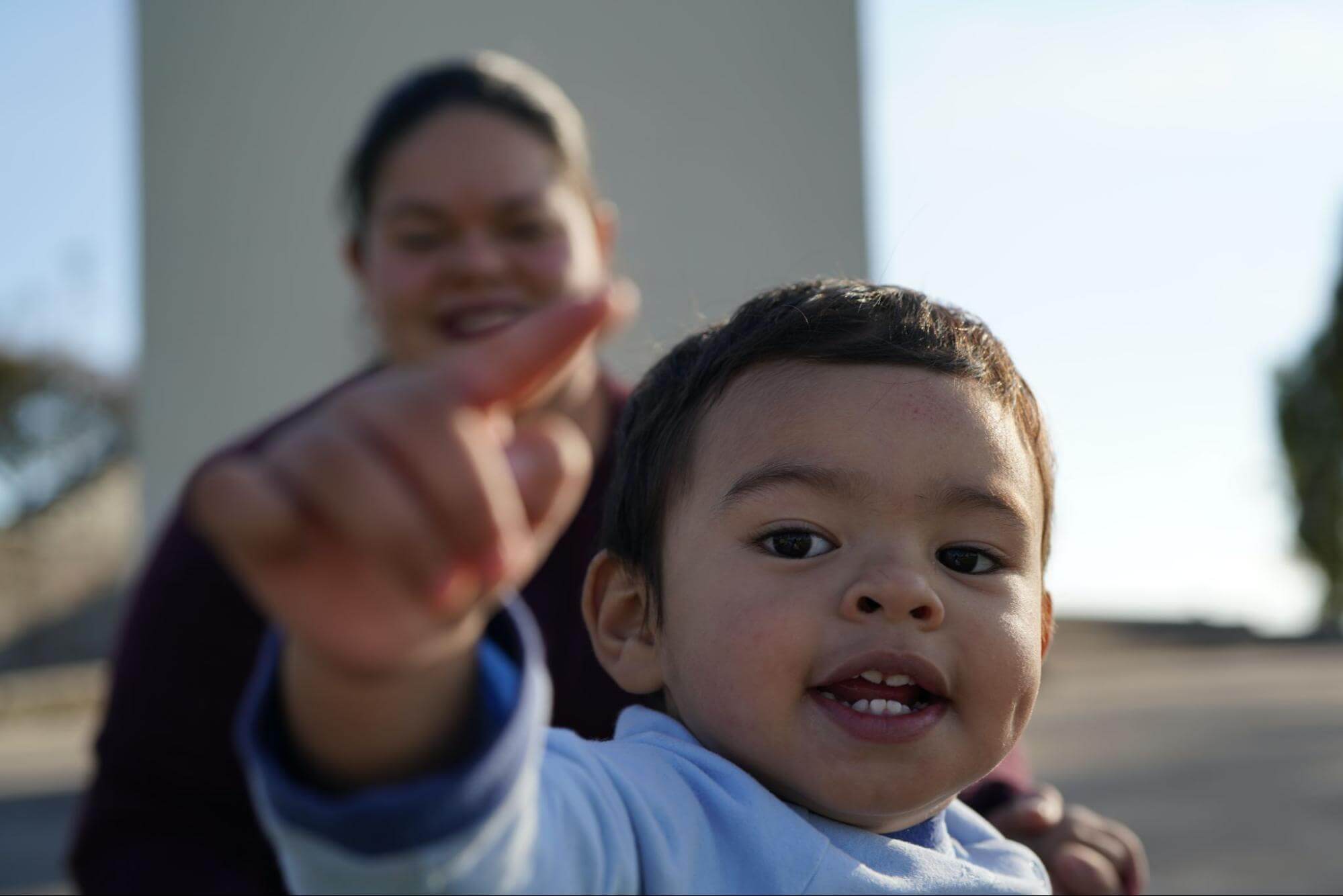While every child is unique and special, most children demonstrate specific skills or tasks by a certain age. These “developmental milestones” cover everything from physical growth, cognitive and language development, to social and motor development. Smiling for the first time, looking at your face, waving “bye-bye,” crawling, and taking the first step are all considered developmental milestones.
Why are developmental milestones important?
Developmental milestones are important markers to help you track your child’s developmental health. These milestones are used by parents, pediatricians, and many other care providers to ensure that your child is developing as expected, and can help identify and address delayed development to facilitate early interventions.
"Milestones are categorized around five major areas: physical growth, cognitive development, emotional and social development, language development, and sensory and motor development," explains Cari Whitlock, Licensed Clinical Psychologist and Neuropsychologist at Healthy Young Minds. "Milestones help you understand how your child learns and grows, and delays in any of these areas can result in mild to severe struggles at home and school. Proper assessment can lead to services that help your child reach their full potential."
How to track a 16-18 month old’s developmental milestones
Many pediatricians work from standardized forms to assess and track your child’s developmental milestones. As a parent, it’s important to keep track of the skills your child exhibits as they grow, since you are most familiar and involved in their day-to-day care. There are multiple tracking apps out there, including the Milestone Tracker App from the Center for Disease Control (CDC).
Child Development Milestones: 16-18 Months
Cognitive milestones |
|
Physical milestones |
|
Language milestones |
|
Social emotional milestones |
|
What are the cognitive milestones for a 16-18 month old?
At this age, your toddler is very curious and loves to explore new things, experiment, and play. This is how they develop imagination, creativity, and problem-solving skills. Your toddler will play with toys in a meaningful way (for example, feeding a doll or pushing a toy car) and engage in pretend play (like pretending to eat with a toy spoon). You may notice that your child copies you doing household activities, like folding clothes or setting the table.
What are the physical milestones for a 16-18 month old?
At this age, your toddler starts to walk without holding on and may try to run or walk up and down stairs with support from you or sturdy objects. Children will also climb on and off a chair without help. Around 16-18 months, your child will feel much more confident with scribbling, drinking from a cup, using a spoon, and turning pages in a book.
What are the speech and language milestones for a 16-18 month old?
Around 16-18 months, your child might say a few words and you will hear more and more real words, like the names of objects and labeling actions, as they babble. Your child begins to follow simple commands without gestures, like ‘open the door’ or ‘give the cup to papa.’ They will also begin to understand their own name.
What are the social and emotional milestones for a 16-18 month old?
At this age, your toddler has developed strong emotional attachments to the people they love. You may notice your child moving away from you to play but look to make sure you are close by. They may also exhibit separation anxiety, which is typical at this age of development. Your child will participate in more daily routines with ease, like putting out their hands for you to wash them, looking at a few pages in a book with you, and helping you dress them.
What if my child is not meeting milestones?
No one knows your child better than you. Always trust your gut. If your child is not meeting age-appropriate milestones, talk to your pediatrician.
Learn more about when you should worry about missing developmental milestones.
